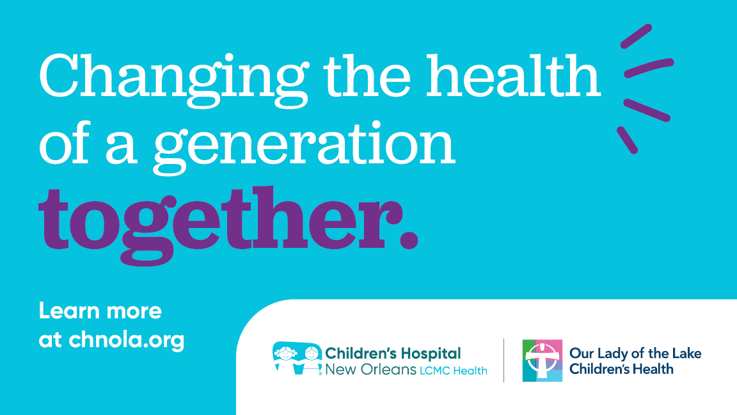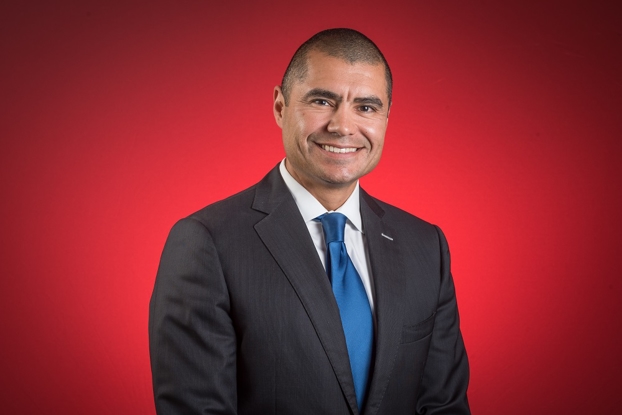Simeon’s story: A family's journey of education and empowerment In sickle cell anemia
- Category: General Health, Patient Stories, Hematology
- Posted on:

Simeon’s story: A family's journey of education and empowerment In sickle cell anemia
Motivation. Resilience. Optimism.
When faced with the daunting reality of a child's diagnosis with sickle cell disease, words like these might not immediately come to mind. But for 3-year-old Simeon Thompson’s family, they are the guiding principles that have transformed uncertainty into a beacon of hope.
Throughout their experience with sickle cell anemia, they have come to understand the importance of education and have witnessed the unwavering support from exceptional hematology doctors and specialists who have become pillars of strength for their family. Through their collaboration, they have built a strong bond and a resilient spirit that unites them as a family and care team.
Coping with sickle cell diagnosis: A collaborative triumph
Simeon's life began with a series of challenges as his tiny body struggled with bouts of pain and discomfort, leaving his parents overwhelmed but determined to shield their child from pain.
Simeon’s parents received the news of their son’s sickle cell anemia diagnosis through a phone call on Mardi Gras day in 2020 when Simeon was just two months old. After going through two primary care physicians and getting a referral from Dr. Corey Hebert, Simeon's parents knew they needed a medical team that would go above and beyond. That's when they found solace and hope in the hematology team at Children's Hospital New Orleans.
Dr. Cori Morrison, an exemplary professional in the field of hematology, has been Simeon's primary doctor and a beacon of compassion throughout this challenging journey. With her expertise, she has provided dedicated care and unwavering patience, serving as a constant source of guidance and support. Alongside Dr. Morrison, Dr. Renee Gardner, a highly experienced specialist in sickle cell disease, has been a trusted partner, consistently equipping mom, Cierra, and dad, Tremaine, with the essential knowledge and resources they require.
From day one, the resident doctors and hematology nurses created a comforting environment for Simeon, treating him with incredible kindness. They made sure he felt at ease and well taken care of. Simeon's vibrant personality and passion for learning about healthcare have made a lasting impact on everyone he met, inspiring them to fall in love with him and his remarkable spirit.
“Life after my son's sickle cell anemia diagnosis has been a delicate balance between resilience and vulnerability. There have been moments where Simeon had to stay at the hospital for a week, enduring procedures like IVs and blood transfusions. However, during those challenging times, the incredible doctors, nurses, and staff transformed his hospital room into a sanctuary – a world where stickers became treasures, and approvals were granted to temporarily disconnect the IV, allowing him to immerse himself in the simple joys of play and exploration,” Cierra shared with heartfelt gratitude. “Their boundless compassion turned moments of fear into moments of joy and instilled in us a sense of optimism. For that, we are forever grateful.”
The medical team at Children’s Hospital and the Thompson family have formed an unbreakable bond as they tackle the complex challenges presented by sickle cell anemia together. Their journey stands as a testament to the power of collaboration and the extraordinary difference that compassionate healthcare professionals can have on the lives of young patients and their families.
[call out box]
Understanding sickle cell disease in children
Sickle cell anemia is an inherited blood disorder that alters the shape and functionality of red blood cells.
This condition manifests through episodes of intense pain, known as sickle cell crises, which can be triggered by factors such as infection, stress, or extreme temperatures.
Through regular medical care, including medication, effective pain management, and preventive measures, coupled with adopting a healthy lifestyle, children with sickle cell anemia can lead fulfilling lives.
[end call out box]
A family-centered education in sickle cell
With their trusted medical team and support system in place, the Thompson family embarked on a journey of education, understanding and proactive management of Simeon's sickle cell diagnosis. Their goal was clear: to help him not only survive, but to thrive. They were determined to do whatever it took to ensure Simeon’s well-being and enhance his quality of life.
Simeon's parents quickly learned their son had a 25 percent chance of having sickle cell disease due to family genetics. They worked together with the hematology team, who educated them thoroughly about the condition, its origins, and how it’s inherited through DNA.
The specialists gave Cierra and Tremaine essential knowledge and skills to identify and respond to various sickle cell symptoms. They became adept at recognizing signs such as swollen hands or feet and jaundice-like yellowness, enabling them to take prompt action when necessary.
Moreover, they understood that each person with sickle cell is unique, and it is crucial to approach the condition on a case-by-case basis. The medical team ensured Cierra and Tremaine were well-informed about Simeon's specific condition and the optimal levels of red blood cell production he needed to maintain. Armed with this knowledge, they were able to closely monitor his lab results and identify any deviations from his normal range, even when medical professionals without specific expertise in sickle cell criteria might overlook them.
The Thompsons gained a profound understanding of the vital role medication plays in effectively managing sickle cell anemia. Penicillin became an integral part of Simeon's daily routine, as it reduced the presence of bacteria in his blood and minimized the risk of infections. Additionally, they received guidance on distinguishing between mild and severe pain episodes, empowering them to respond accordingly.
With this knowledge, the Thompsons have become actively involved in their child's healthcare, passionately advocating for his well-being and ensuring that he receives the highest quality of care and support.
The education and protocols provided by the Children’s Hospital team gave Simeon’s parents a sense of control over his condition, and alleviated their worries and fears. They went from being concerned parents to becoming proactive caregivers, equipped with profound knowledge and indispensable tools to navigate their son's life with sickle cell anemia.
Practical parenting: Managing your child’s sickle cell disease
Cierra and Tremaine offer practical and creative suggestions for parents navigating the challenges of managing a child with sickle cell anemia.
One of the hurdles they encounter is the need to set limits on certain activities. For example, whenever Simeon engages in water play, it often triggers a pain crisis within a couple of days. Dealing with these episodes can be particularly challenging when the child is young and has trouble expressing their feelings effectively. However, as Simeon has grown older, his ability to communicate his experiences has improved, leading to enhanced management of his condition.
Simeon’s family has also learned that dehydration plays a significant role in triggering pain crises, prompting them to develop clever strategies to ensure Simeon remains well-hydrated. Engaging him in activities such as blowing bubbles through a straw, trying different fruits, and enjoying popsicles has become a fun and effective way to maintain optimal hydration levels.
Managing Simeon's condition goes beyond just practical matters. It affects various aspects of their daily lives reshaping their household dynamics and influencing what they eat.
The family has embraced a healthier eating approach, recognizing the crucial role nutrition plays in managing sickle cell anemia. Further, the unpredictable nature of the condition has prompted them to seize every opportunity for family bonding, appreciating the importance of cherishing shared moments.
The family understands that sickle cell anemia affects not only Simeon but also his older brother. The Thompsons have taken steps to support him emotionally through therapy. This thoughtful approach has helped Simeon's sibling cope with the emotional challenges that arise from witnessing his brother's pain, fostering a nurturing and resilient sibling relationship.
The journey of Simeon Thompson and his family shows how holistic care, education, teamwork, and unwavering support can make a difference in managing sickle cell disease. By working closely with the medical team at Children's Hospital New Orleans, they have transformed the initial uncertainty and fear into motivation and strength.to face challenges together.
“To other parents who find out their child has sickle cell disease: never give up,” Cierra shared. “Sickle cell is a livable disease. Stay emotionally strong. Seek education from your medical team. Engage with your unique child. Embrace openness with family and friends. Let them know that sickle cell is part of them, but they can and will live a normal life.”
To learn more about the hematology team at Children’s Hospital New Orleans, visit www.chnola.org/services/hematology-oncology.



